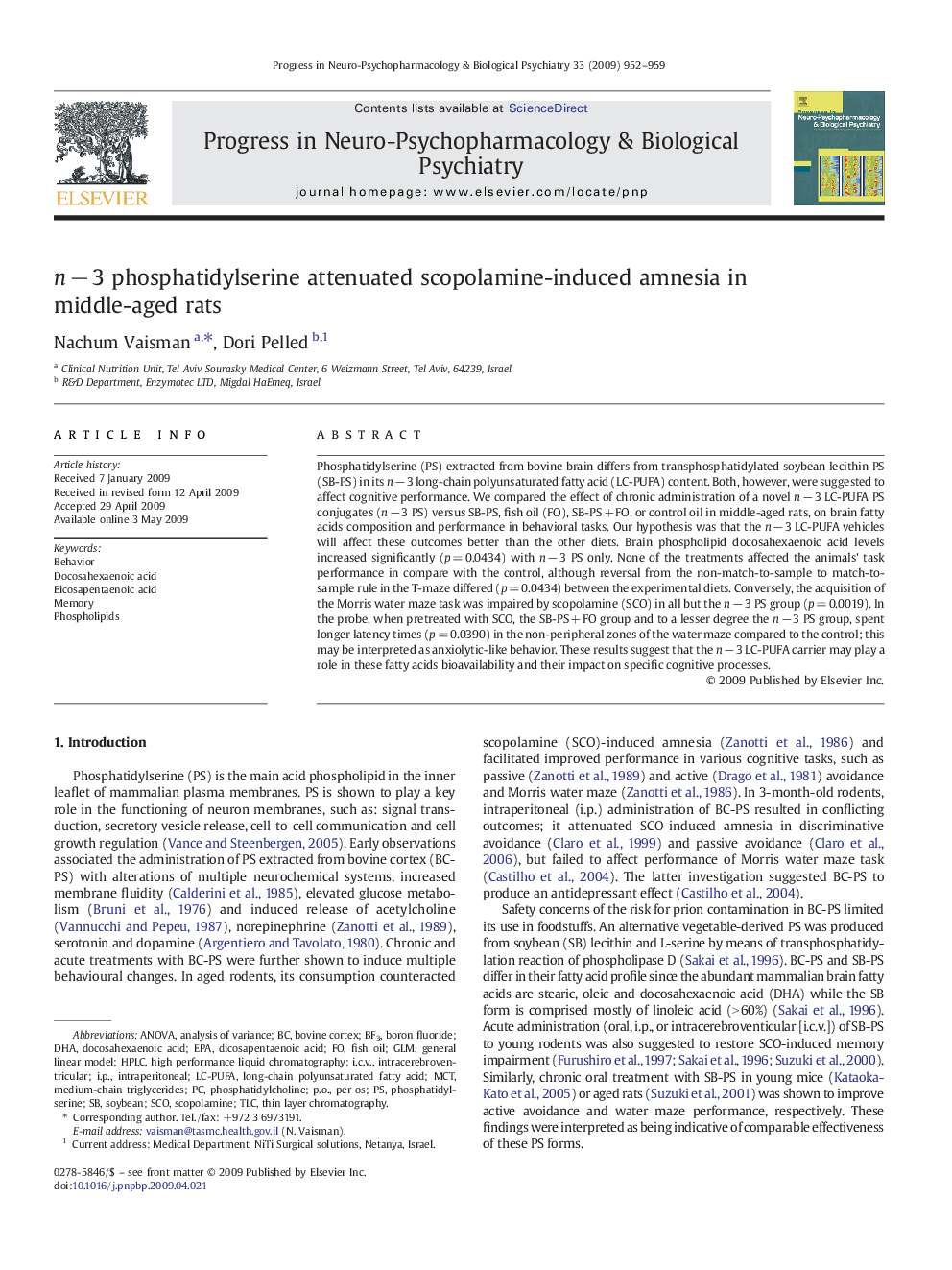| Article ID | Journal | Published Year | Pages | File Type |
|---|---|---|---|---|
| 2565804 | Progress in Neuro-Psychopharmacology and Biological Psychiatry | 2009 | 8 Pages |
Phosphatidylserine (PS) extracted from bovine brain differs from transphosphatidylated soybean lecithin PS (SB-PS) in its n − 3 long-chain polyunsaturated fatty acid (LC-PUFA) content. Both, however, were suggested to affect cognitive performance. We compared the effect of chronic administration of a novel n − 3 LC-PUFA PS conjugates (n − 3 PS) versus SB-PS, fish oil (FO), SB-PS + FO, or control oil in middle-aged rats, on brain fatty acids composition and performance in behavioral tasks. Our hypothesis was that the n − 3 LC-PUFA vehicles will affect these outcomes better than the other diets. Brain phospholipid docosahexaenoic acid levels increased significantly (p = 0.0434) with n − 3 PS only. None of the treatments affected the animals' task performance in compare with the control, although reversal from the non-match-to-sample to match-to-sample rule in the T-maze differed (p = 0.0434) between the experimental diets. Conversely, the acquisition of the Morris water maze task was impaired by scopolamine (SCO) in all but the n − 3 PS group (p = 0.0019). In the probe, when pretreated with SCO, the SB-PS + FO group and to a lesser degree the n − 3 PS group, spent longer latency times (p = 0.0390) in the non-peripheral zones of the water maze compared to the control; this may be interpreted as anxiolytic-like behavior. These results suggest that the n − 3 LC-PUFA carrier may play a role in these fatty acids bioavailability and their impact on specific cognitive processes.
